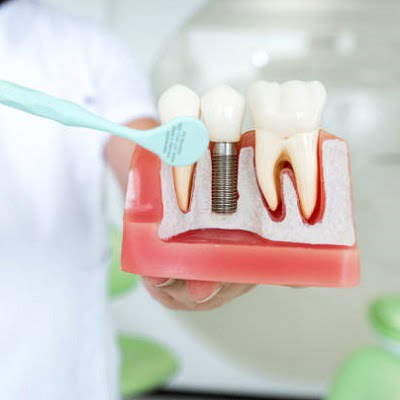
Dental implants have revolutionized dentistry by offering a durable, natural-looking solution to replace missing teeth. While dental implants in Islamabad boast a high success rate and numerous benefits, several factors can affect their long-term stability and health. One such factor that raises concerns is smoking.
In this blog post, we’ll delve into the intricate relationship between smoking and dental implants, exploring how smoking can potentially affect the success and longevity of your dental implant investment.
The Dental Implant Process: A Brief Overview
Before diving into the effects of smoking on dental implants, let’s quickly review the dental implant process. A dental implant is a titanium post surgically inserted into the jawbone as an artificial tooth root.
Over time, the implant fuses with the jawbone through osseointegration. Once this fusion is complete, an abutment and crown are placed atop the implant, creating a fully functional and aesthetically pleasing replacement tooth.
Smoking and Implant Failure:
Smoking is notorious for its adverse effects on overall health, and its impact on oral health is no exception. When it comes to dental implants, smoking can significantly compromise the procedure’s success and the implants’ longevity. Here’s how:
- Impaired Blood Circulation: Nicotine and other harmful chemicals in tobacco products constrict blood vessels, reducing blood flow to the surgical site. This impedes the body’s natural healing process, making it more difficult for the implant to integrate with the bone.
- Delayed Healing: Smoking has been linked to delayed wound healing, which is particularly concerning in the context of dental implant surgery. Proper and timely healing is crucial for the implant’s stability and long-term success.
- Increased Risk of Infection: Smoking weakens the immune system, making implant sites more susceptible to infections. An infection around the implant area, known as peri-implantitis, can lead to bone loss and implant failure.
- Bone Loss: Successful osseointegration relies on healthy bone density and structure. Smoking has been shown to contribute to bone loss in the jaw, which can undermine the implant’s stability and result in its failure.
- Gum Disease: Smoking is a significant risk factor for gum disease (periodontitis), which can further compromise the health of dental implants. Gum disease weakens the supporting structures of the teeth, including the bone, potentially leading to implant failure.
Improving Implant Success: Quitting Smoking
The detrimental effects of smoking on dental implants highlight the importance of quitting smoking if you’re considering or have already undergone implant surgery. Here are a few reasons why quitting smoking can positively impact the success of your dental implants:
- Enhanced Healing: When you quit smoking, blood circulation improves, aiding in faster healing and reducing the risk of complications post-surgery.
- Reduced Infection Risk: A stronger immune system from quitting smoking can help your body fight off potential infections around the implant site.
- Better Bone Health: Smoking contributes to bone loss, weakening the foundation for dental implants. By quitting, you allow your bones to maintain their density and strength.
- Long-Term Implant Survival: Implants placed in non-smokers generally have a higher success rate and longer lifespan than smokers.
- Overall Oral Health: Quitting smoking not only benefits your dental implants but also improves your oral health as a whole. It lowers the risk of gum disease, cavities, and other oral health issues.
The Bottom Line!
Dental implants provide an exceptional solution for individuals seeking to restore their smiles and regain confidence. However, the success of this transformative procedure is closely intertwined with lifestyle factors, mainly smoking. The evidence is clear: Smoking can significantly increase the risk of implant failure by impairing healing, increasing infection rates, and weakening bone density.
If you’re a smoker considering dental implants or have already undergone the procedure, quitting smoking is one of the best decisions you can make for oral health and dental implants’ longevity. Consult your dentist at SKN Cosmetic Clinic Islamabad for guidance on quitting smoking and ensuring your implants. Remember, a smoke-free life benefits your dental implants and contributes to your overall well-being.









